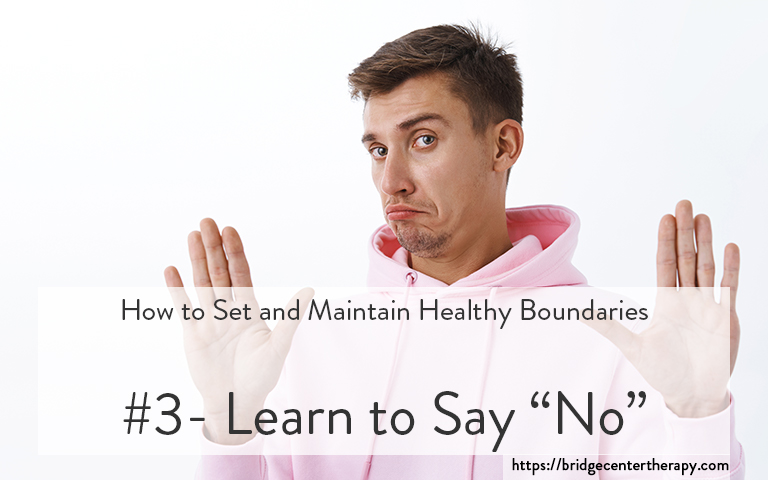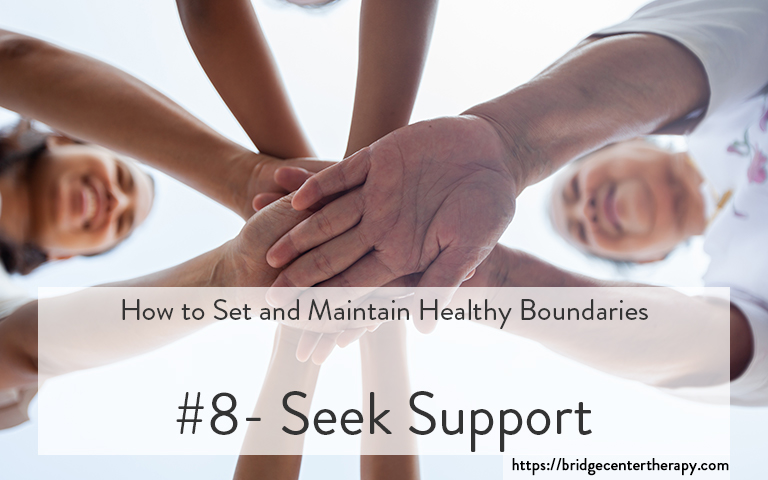
Boundaries are an essential part of coping with anxiety. You need a healthy sense of personal space. Boundaries help you maintain your identity in your personal and professional relationships. They help you limit how you respond to others and maintain your mental and physical wellbeing. But, how do you set limits if you’ve never spoken up before. Here are some tips.
You can get there from here.
You can’t set good boundaries if you are unsure of where you stand. Consider what you can tolerate and accept and what makes you uncomfortable and stressed.
2- Start Small
One simple change might do for a start. Build upon small successes. Try not to take on something that feels overwhelming at first.
It can be daunting, but practice just saying, “No.” It’s a complete sentence. It’s not necessary to offer an explanation.

Don’t conceal your feelings because you’re scared of people’s reactions. You need to communicate clearly. Otherwise you will only create really confusing relationships.
5- Know You’re in Charge
You’re allowed to change your mind. You don’t owe anyone anything related to your personal space, that you’re not comfortable giving. Be ready to walk away.
6- Practice the Habit
Setting limits will be a new habit. All healthy habits require practice. Practice how to tell someone when they’ve crossed a line.
7- Take Responsibility for Yourself
Become aware and know what you need to do for you. By setting boundaries you are telling others how you expect to be treated. Whatever you say goes.
8- Seek Support
If you are having a hard time, consider seeking support from a support group, counseling, coaching, good friends or family.

9- Be Assertive
It shows confidence. Be firm but kind. Assertive language is clear without threatening the recipient. You can be assertive by using “I statements”.
10- If All Else Fails, Ignore
Voice your boundaries first, then follow with action. If you have asserted yourself and you’ve been ignored, it’s okay to stop interaction to protect your wellbeing.
Need Help? We Can Help.
If you’re not used to setting boundaries, you may feel guilty and selfish when you start. It’s necessary and will become easier with practice. Also remember that it’s a two-way street. Respect the boundaries that others have set for themselves.
Would you like to speak to one of our psychotherapists? Call (510) 497-4174 to schedule your free consultation today.
If you have any questions or require more information, please contact Lani here: lani@bridgecentertherapy.com
